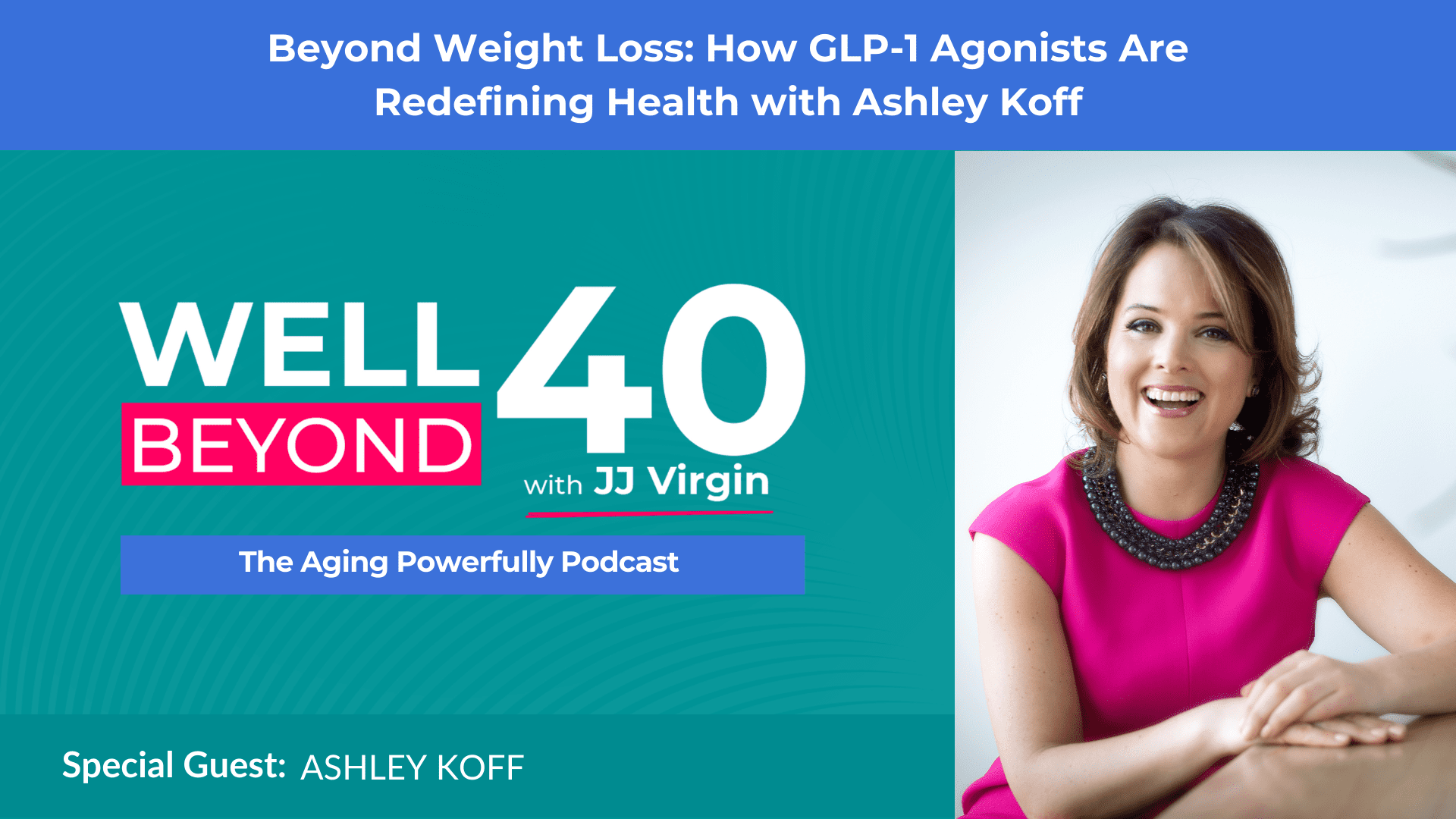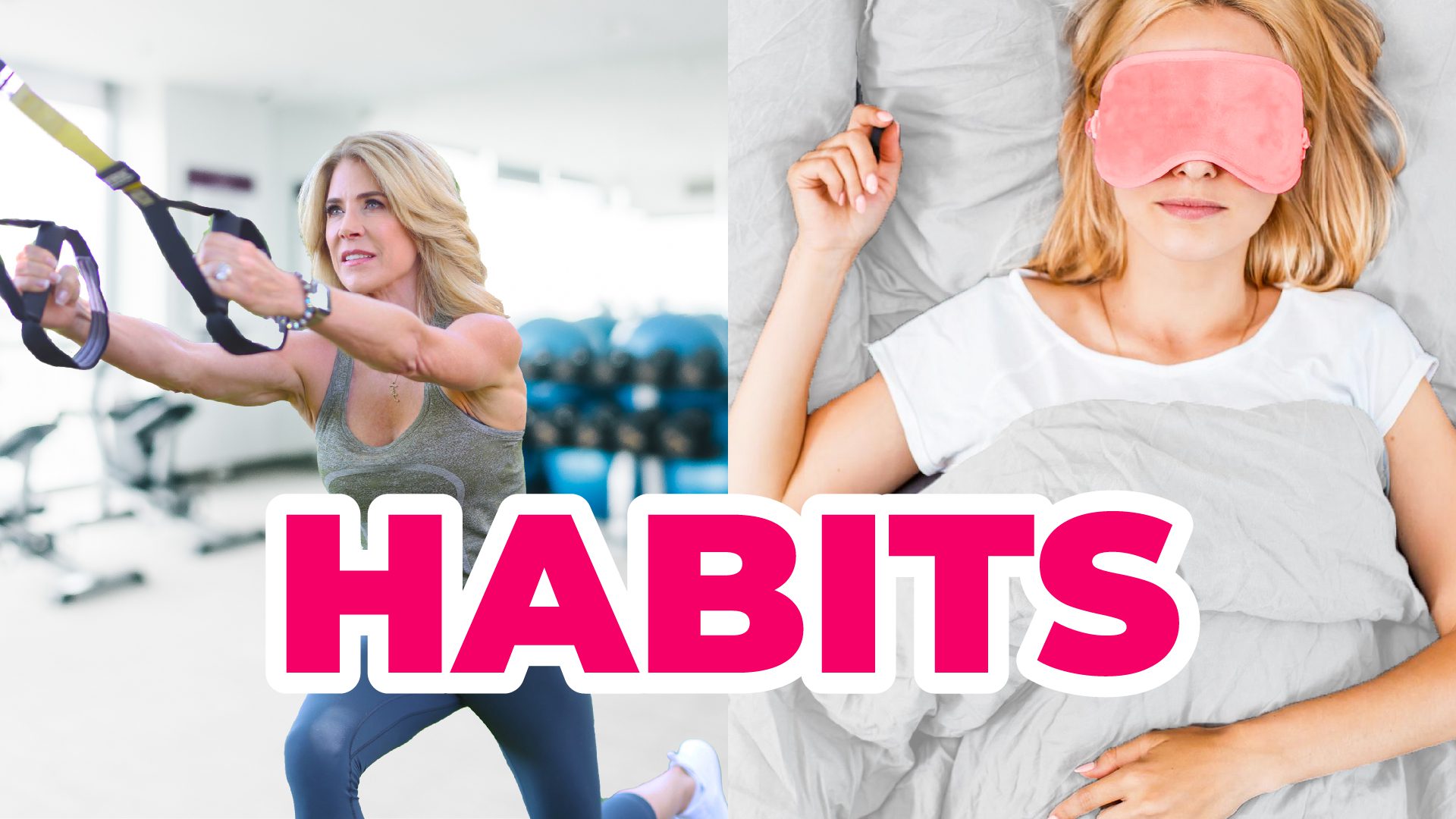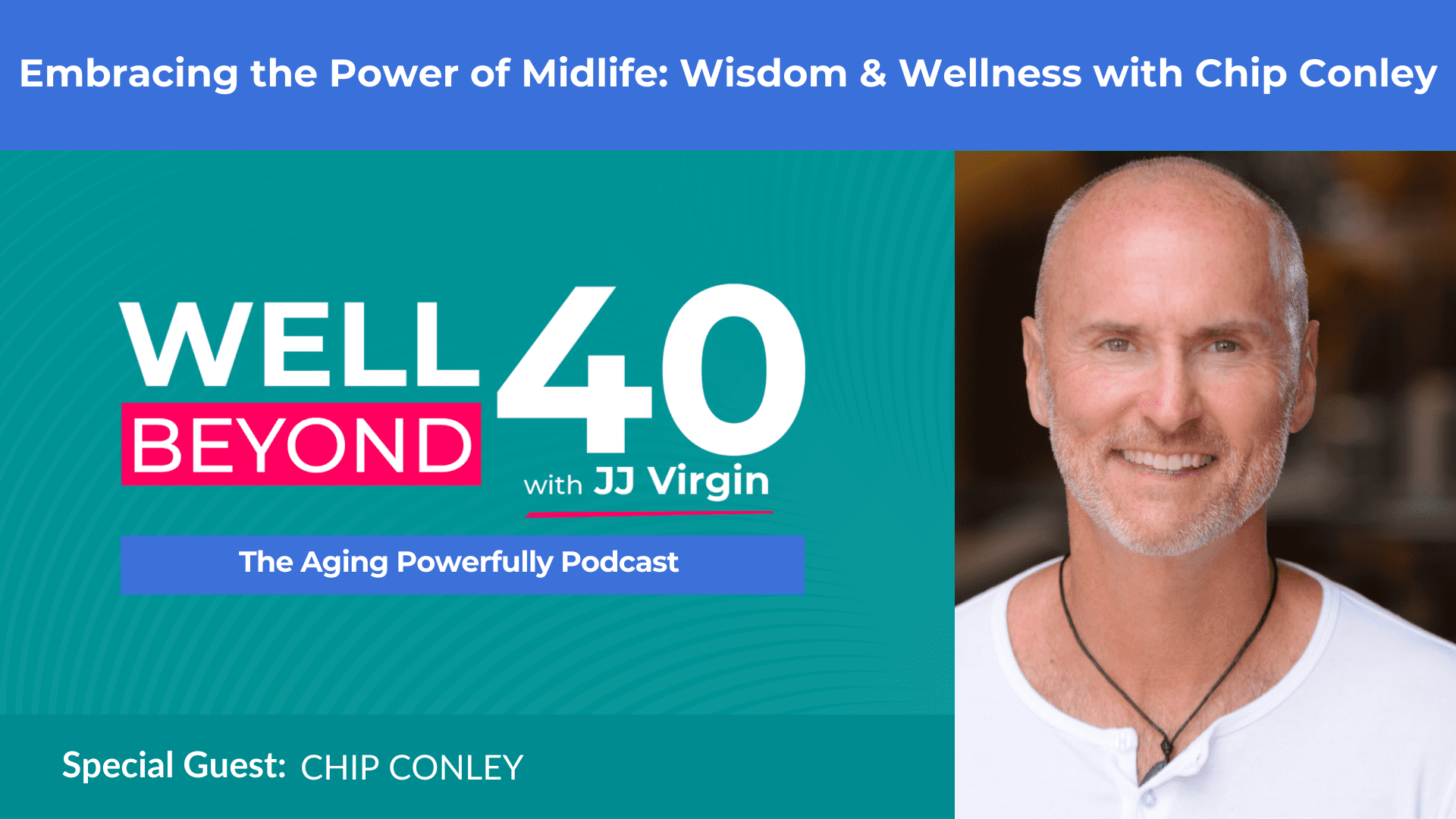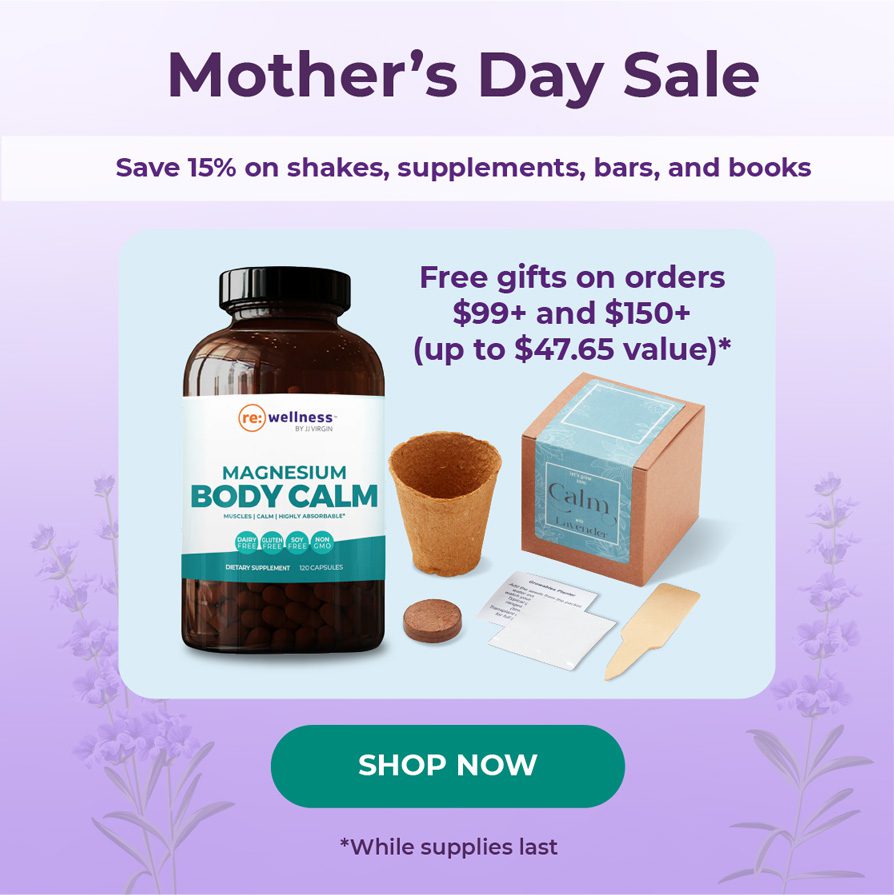How to Outsmart Aging and Feel Amazing at Every Age
How do I look and feel better at 60 than I ever have? Sometimes, the key to aging powerfully is in what you don’t do.
In this episode, instead of giving you things to add to your routine, I’m sharing the six things I stopped doing over the last decade that upgraded my health, well-being, and happiness. You’ll find out what was quietly accelerating my aging, how non-refundable tickets increased my joy, the nightly habit I kicked to the curb, and why even I sleep in sometimes! And, of course, you’ll walk away with anti-aging strategies you can start using today.
If you want to give yourself the best shot at a longer, healthier, and fuller life, tune in to this episode now!
Timestamps
00:01:14 – Here’s what I stopped doing to feel and look better at 60
00:02:53 – This was raising my biological age. I had to address it.
00:04:29 – How I fixed my habit of underfunning
00:06:11 – I’d rather have this than chocolate cake
00:07:49 – We can lose up to 6% of this every year!
Resources Mentioned in this episode
Watch the FULL VIDEO on my YouTube Channel
Get my free Anti-Aging From the Inside Out Cheat Sheet
Get a light-blocking sleep eye mask
Reignite Wellness™ Sleep Candy
Reignite Wellness™ Magnesium Body Calm
Designs for Health Phosphatidylserine
Dr. Joe Dispenza meditations
Try Dry Farm Wines natural wine
Find your protein needs with my protein calculator
Track your protein & macros with Cronometer App
Reignite Wellness™ All-In-One Shakes
Learn about HIIT with my video, How To Burst Train the Right Way
Watch Best Strength Training Routine for Women Over 40 (+ Free Workout Plan!)
ATHE_Transcript_Ep 604_6 Things I Stopped Doing Once I Turned 50 for Better Longevity
JJ Virgin: [00:00:00] I'm JJ Virgin, PhD dropout, sorry mom, turned four time New York Times best selling author. Yes, I'm a certified nutrition specialist, fitness hall of famer, and I speak at health conferences and trainings around the globe, but I'm driven by my insatiable curiosity and love of science to keep asking questions, digging for answers, and sharing the information I uncover with as many people as I can, and that's why I created the Well Beyond 40 To synthesize and simplify the science of health into actionable strategies to help you thrive.
In each episode, we'll talk about what's working in the world of wellness, from personalized nutrition and healing your metabolism to healthy aging and prescriptive fitness. Join me on the journey to better health so you can love how you look and feel right now and have the energy to play full out.[00:01:00]
Once you hit 50, it's kind of like there's a switch that flips into this like zero Fs given mode. You know what I'm talking about? You finally start putting yourself first and you can let go of a lot of the BS around you. So now that I'm 60, I'm sharing all the things that I stopped doing over the last decade that's made me feel and look better than I ever have.
So here's the first one. I stopped stealing from sleep. Sleep is mission critical as we age. And no, you don't need less as you age. No, you don't, because this is what you do for growth hormone and repair. And what you measure and monitor, you can improve. So I'm big on using trackers. I love the Oura Ring for sleep.
I got to say a little caveat on that. If you wake up and it said you had a bad night's sleep and you feel great, ignore, right? But use it to really learn something about what's working for you. Here's where I love to use it when I'm time zone adjusting, or let's say that I'm going somewhere and it's just going to be [00:02:00] a later night.
What I make sure that I do in those situations is that I make sure I have time to sleep in. I make sure that I have time to adjust to that time zone. I don't try to be super women here. I always travel with an eye mask and earplugs. You just never know. And sleep candy and magnesium and also phosphatidylserine.
That's another thing I'll use to help myself time zone adjust. So number one, and I made it number one for a reason. It's that important. The second one, and holy smokes, I wish I'd done this in my 20s. What a tool it would have been. I was not taking care of my nervous system. I was really kind of bashing it, taking it for granted.
But during the pandemic, I decided to finally get in to meditation and I went to a Dr. Joe Dispenza meditation retreat week long. Like when I go in, I go way in. Now, this is important because I'd actually had my telomeres. Tested. I'd had my physiological age tested. [00:03:00] And what I saw was I was not where I needed to be.
Why? Because of stress. I've been under enormous stress throughout my life and especially in the last. 11 years with my son who had a traumatic brain injury and who's been still healing from that. And as we know, stress is super aging and also super catabolic. So I've done all the other things I need to do.
I did the supplements. I was working on the sleep and I was doing high intensity interval training, but I hadn't done the one thing that was the big thing that really helps here. And that is some kind of mindfulness practice that helps reset your nervous system. So. I went into this meditation retreat and I was super excited.
And by the end of the first week, I was super frustrated because I wasn't really getting anywhere and everybody around me was like making all these improvements. And I just thought, you know what, I'm going to take my nervous system and put it in the same type of workout I would my body. I'm going to give it six months to make the shift.
And it [00:04:00] took that long, by the way. But I was commenting to my husband the other day, the difference now of having this meditation practice on board is everything in terms of my nervous system. So that is one that if I could rewind the clock, I would have started that not just before 50. I would have started that probably in high school.
Two other things that I've been doing here is not blowing off relationships. I had so much work to do and so many things to do that I would blow off having time with friends. And I would prioritize work. Over friends, which is what I call underfunding, right? Overworking, underfunding. So I started to make sure that I had time with friends, but I also started to make sure that I was planning fun things.
We live in Tampa. We have great activities going on all the time here. So I make sure that I plan fun things like concerts and trips, et cetera, and things especially that are non refundable. So you can't back out. Now, the next thing that I should have done [00:05:00] sooner is to stop drinking wine every single night.
When I met my husband, Tim, I'm going to blame him because he's not here. When I met him, we got into a little bit of a rut, just where we would like end the day. We'd start cooking dinner together. We'd pop open a bottle. It was dry farm wines, of course, but every night, and you know what happens when you do that?
It's going to impact your sleep a little bit. You have a little bit higher body fat. You're drinking the wine in the night. You're not getting anything accomplished. You're just like, you know, vegged out on the couch. And the deal with alcohol is if you're drinking alcohol with dinner, your body's got to metabolize the alcohol before it handles anything else.
So you're not burning fat, you're metabolizing alcohol. And so what we finally decided to do, I don't even know how we came to this conclusion, but we just knocked it off. We just said, you know, we can do this, you know, on a weekend. We can do it when we go out, but no more like every night thing. Wasn't that big of a deal after all.
The next one is under eating protein. Now, I've always been one of those [00:06:00] people that feels best eating more protein. And given the option between like a chocolate cake or a steak, I will take the steak every single time. Love protein. And I usually eat about 150 grams a day, sometimes more, but I wasn't tracking it before.
And so I wasn't always hitting the amount I needed, and especially I wasn't always hitting the amount I needed in the morning. Now, this is really important as we age 40 plus, because as we age… We get something called anabolic resistance, where a body cannot take that protein and help us do muscle protein synthesis as well.
So we actually need more. And so I put together a protein calculator. You'll see it down below that you can link into. So you'll find exactly what you need based on your age, your sex, if you are working out, if you're recovering from surgery, et cetera. But the big important thing here is. Not only do you need the right amount of overall, you also especially need the right amount in your bumper meals, when you break your fast in the morning [00:07:00] and the last meal before you go to bed three to four hours later.
And the calculator will help you figure that stuff out. The next one, hosting with my same old routine at the gym. Holy smokes. I was going into the gym. Doing my same old thing. The only thing that saved me from myself was the fact that I traveled so much that I couldn't totally do the same old thing because I was in different places with different equipment, but I still wasn't really pushing myself.
I was doing my eight to 12 reps. Could I have gone further? Oh, totally. And I wasn't incorporating any power moves. Now here's why that matters. As we age, we've got two types of fibers, type one and type two. And type 2 fibers, those are the ones that really help us with these quick explosive movements, really moving stuff, gripping stuff, pushing stuff, those are the ones we tend to lose.
As we age, starting around age 40, some people say it's around age 35, we can lose up to 1 percent of our muscle size a year. But that's not the scary part. We can lose up to 2 4 percent of our strength and [00:08:00] 6 percent of our power. So when you really look at what we need to do with our exercise routine, if we're doing the same old thing as we're aging, We are slowly declining, and what you want to make sure of is that you're trying to keep as much or build as much as you possibly can, so that when you do start to decline, you've created a really good base.
So I just went, you know what? This is it. I'm going to really push it. I'm going to lay on as much muscle as I can, get as strong and as powerful as I possibly can. So what did I do? In order to get myself out of the rut, I went to a local high intensity interval training class. And I always know I'm in the right place.
If I walk into the class and my husband, I walk in and they're like, you sure you want to do this? We were the oldest people in the room. Everybody in there is like sprinting on the treadmills to get warmed up. And they're about 20, 25. And we're like, yeah, we want to do this game on. And what happened during that HIT class, it was a HIT power class.
And they had us [00:09:00] sprinting on self propelled treadmills and doing burpies, and plyometrics, and stuff that I used to do, but it hurts, you know, so I kind of had stopped doing it. And the minute I did that, I went, all right, I'm back. And I started incorporating all of these things back in. And I say this because it is very easy for all of us to get into a workout rut and stop pushing ourselves.
But exercise has to be progressive. You have to continue to overload the system in order to continue to progress. If you're not, as we age, we're not staying the same. We're going, so get a trainer, have them push you, go to a class. There's so many different options out there of how you can do this, right?
But push yourself past what you think you're capable of. Now if you're new to working out, I know it can be intimidating to walk into a gym alone and to figure out how to put together a routine all on your own. So to make it easy for you, I walk you through a beginner strength training routine in this next video.
You'll get a look at the exercises I recommend, how often to do [00:10:00] them, my recommendations for setting up your home gym, and you'll get a free download to keep track of your workouts every week. Watch the next video here and get inspired. Be sure to join me next time for more tools, tips, and techniques you can incorporate into everyday life to ensure you look and feel great, and more importantly, that you're built to last.
And check me out on Instagram, Facebook, YouTube. And my website, jjvirgin.com and make sure to follow my podcast so you don't miss a single episode at subscribetojj.com. See you next time.
Hide Transcript
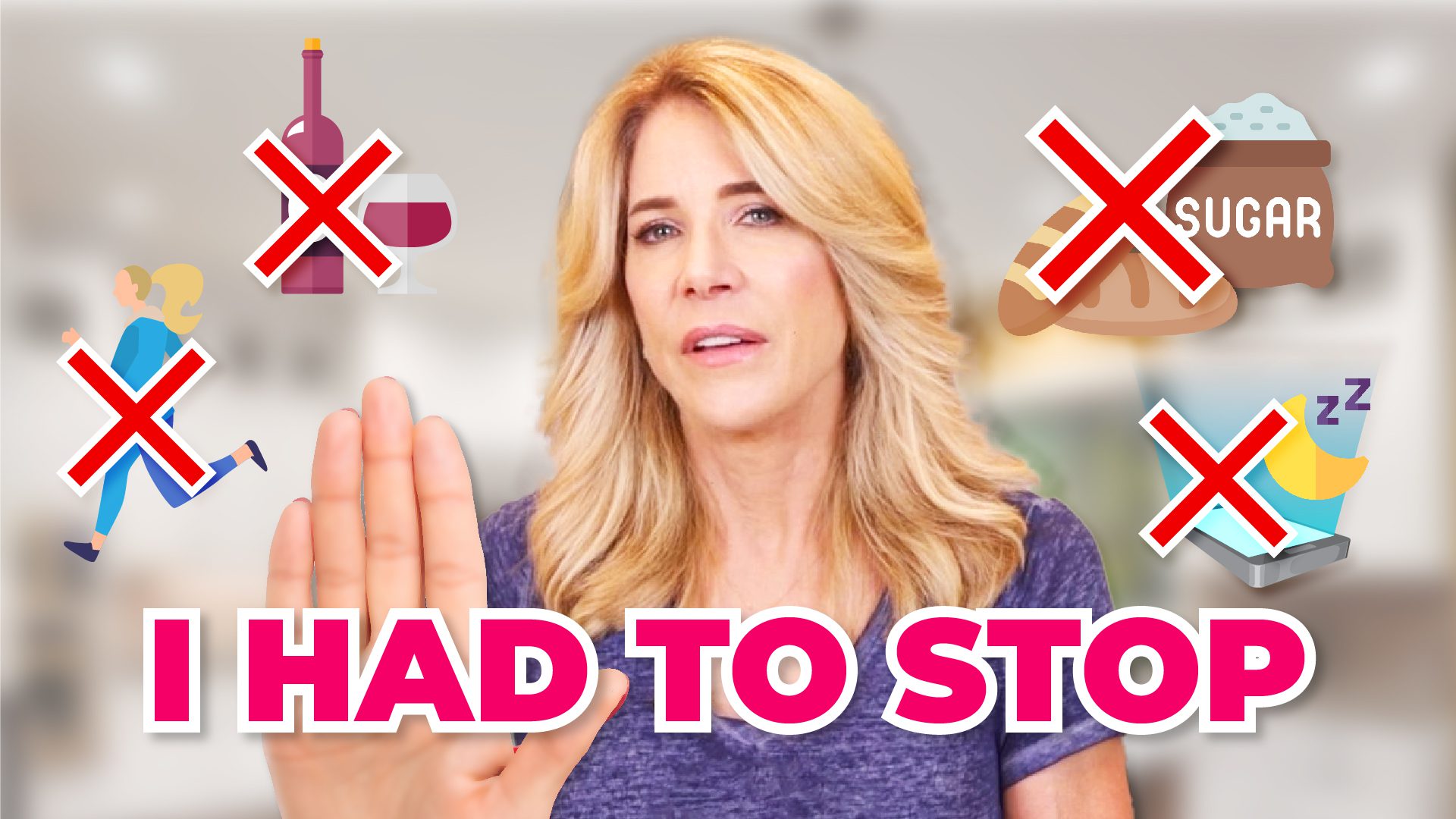
 Subscribe to our show
Subscribe to our show 